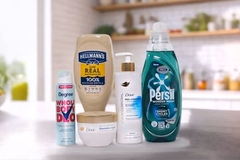Washington State moves to ban formaldehyde-releasing chemicals in cosmetics

Washington State’s Department of Ecology, US, has released a draft regulation proposing a ban on 28 formaldehyde-releasing chemicals in beauty and personal care products manufactured, sold, or distributed state-wide. If adopted, the restrictions will take effect on January 1, 2027.
These chemicals, found in nail polish, hair gel, shampoos, and hair straightening products release formaldehyde, a known human carcinogen. Formaldehyde can influence brain function, cause respiratory problems, and allergic reactions in the skin and eyes.
The chemical is added to product formulations as a preservative to prevent bacterial growth and extend product shelf life. Despite the chemical’s link to serious health risks, some cosmetic treatments, like hair-straightening, still contain high concentrations of formaldehyde-releasing ingredients. When heated with styling tools these products release more formaldehyde into the air, increasing the risk of inhalation.

Efforts to eradicate
US consumer advocacy groups have been working to ban formaldehyde from beauty solutions. The Environmental Working Group (EWG) previously condemned the US Food and Drug Administration (FDA) for its deprioritization of banning the harmful chemical, after years of bureaucratic dormancy and regulatory inaction.
Last month, the EWG told Personal Care Insights that the FDA’s failure to ban formaldehyde federally puts salon employees and consumers at risk. The American activist group said the “issue must be addressed as a public health priority.”
.jpg) When heated with styling tools, cosmetic products release more formaldehyde into the air, increasing the risk of inhalation.Cosmetologists frequently handle hair treatments and nail products and are at higher risk due to repeated contact and prolonged exposure in enclosed salon spaces. Additionally, women of color are disproportionately affected, as they are more likely to use products containing formaldehyde, such as hair relaxers and keratin treatments.
When heated with styling tools, cosmetic products release more formaldehyde into the air, increasing the risk of inhalation.Cosmetologists frequently handle hair treatments and nail products and are at higher risk due to repeated contact and prolonged exposure in enclosed salon spaces. Additionally, women of color are disproportionately affected, as they are more likely to use products containing formaldehyde, such as hair relaxers and keratin treatments.
Shari Franjevic, the lead implementor of the ban from Washington’s Department of Ecology, explains that the chemical poses a greater risk to some demographics than others. “Formaldehyde-releasing chemicals are a special concern because they’re in many cosmetic products routinely used by women, people of color, and cosmetologists.”
By targeting these chemicals, Washington officials aim to protect consumers and professionals in the beauty industry.
Implications for the beauty industry
If Washington’s proposed regulation is enacted, cosmetic companies will be expected to reformulate many products in compliance with the new restrictions. While some brands have already moved toward formaldehyde-free alternatives, others may need to invest in research and development to find safer preservatives.
The European Commission has already restricted formaldehyde-releasing chemicals in cosmetics and introduced stricter transparency requirements.
Washington’s initiative could set a precedent for other states to follow, leading to potential nationwide policy changes despite the federal negligence.
Washington’s Department of Ecology expects the proposed rule to aid the environment and lower pollution by reducing the release of toxic chemicals into the air, water, and soil during the production and disposal of cosmetics. Ecology is currently inviting public comments on the draft regulation, allowing businesses, scientists, and consumers to weigh in.













